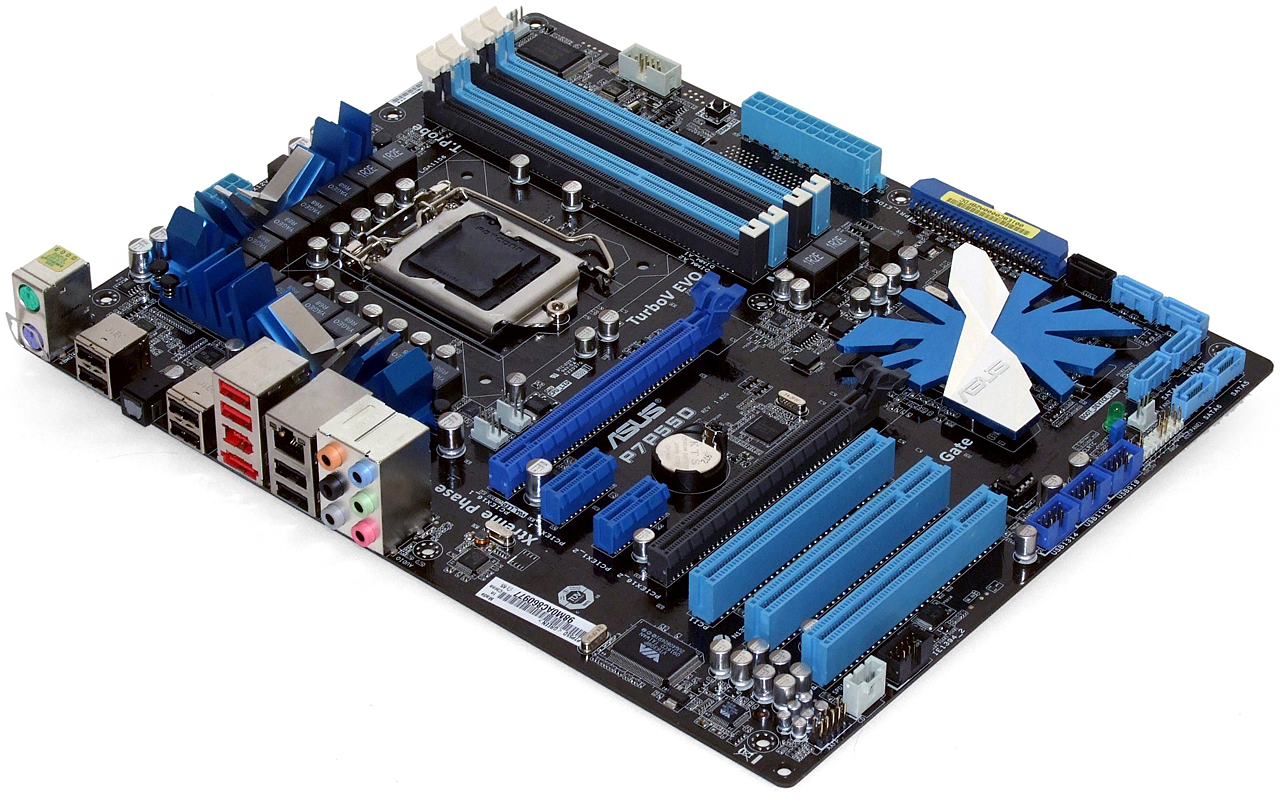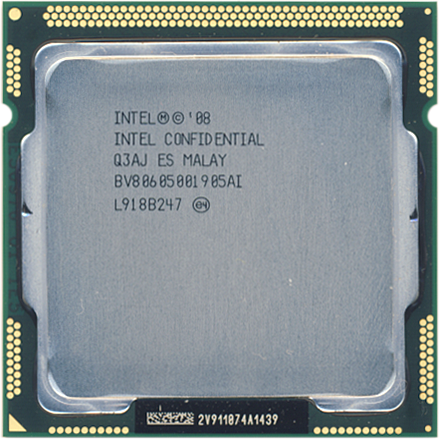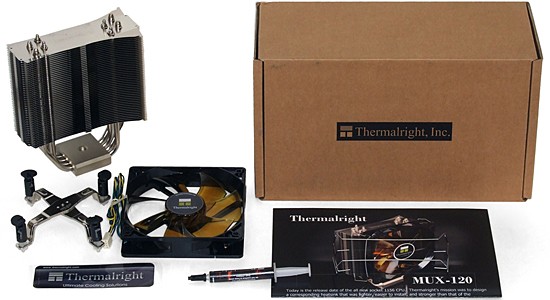Benchmarking Windows 7: Harder, Better, Faster, Stronger?
Test Settings
Modern hardware and software deserve each other, so we used some of our latest parts to gauge the performance difference of each operating system.
| Test System Configuration | |
|---|---|
| CPU | Intel Core i7-870 (2.93 GHz, 8MB Cache) |
| CPU Cooler | Thermalright MUX-120 |
| Motherboard | Asus P7P55D, BIOS 0606 (09/03/2009), P55 Express Chipset, LGA 1156 |
| RAM | Kingston KHX2133C9D3T1K2/4GX (4GB) DDR3-2133 at DDR3-1600 CAS 8-8-8-24 |
| Graphics | XFX GeForce GTX 285 XXX Edition 670 MHz GPU, GDDR3-2500 |
| Hard Drive | Western Digital Velociraptor WD3000HLFS, 300GB, 10,000 RPM, SATA 3 Gb/s, 16MB cache |
| Sound | Integrated HD Audio |
| Network | Integrated Gigabit Networking |
| Power | CORSAIR CMPSU-850HX 850W, ATX12V v2.2, EPS12V |
| Software | |
| New OS | Microsoft Windows 7 Ultimate x64 |
| Legacy OS | Microsoft Windows Vista Ultimate x64 SP1 |
| Graphics | Nvidia GeForce 190.62 WHQL |
| Chipset | Intel INF 9.1.1.1014 |
We used Asus’ P7P55D motherboard. Featuring Intel’s latest LGA 1156 socket and P55 Express PCH, the board took top honors, alongside one from Gigabyte, in our recent mainstream roundup. Better compatibility with this tester’s ancient drive-imaging software made Asus the default choice.
The reason for using so modern a motherboard is to support Intel’s latest LGA 1156 processors. Turbo Boost allows its Core i7-870 to increase CPU multipliers up to 27x (3.6 GHz), 26x (3.46 GHz), and 24x (3.2 GHz) for single-, dual-, and multi-threaded applications.
One significant fact about LGA 1156 processors is that they require high C-states (sleep states) for three cores in order to allow the highest multiplier to affect a single core. Rumors of better C-state function under Windows 7, if true, could give the new OS a significant performance advantage in single-threaded applications.
Thermalright’s new MUX-120 cooler brings Cogage True Spirit performance to LGA 1156 processors.
| Benchmark Configuration | |
|---|---|
| 3D Games | |
| Crysis | Row 1 - Cell 1 |
| Row 2 - Cell 0 | Patch 1.2.1, DirectX 10, 64-bit executable, benchmark tool Test Set 1: High Quality, No AA Test Set 2: Very High Quality, 8x AA |
| Far Cry 2 | Patch 1.03, DirectX 10, in-game benchmark Test Set 1: High Quality, No AA Test Set 2: Ultra High Quality, 8x AA |
| S.T.A.L.K.E.R. Clear Sky | Clear Sky Benchmark version Test Set 1: High Preset, DX10 EFDL, No AA Test Set 2: Ultra Preset, DX10 EFDL, 4x MSAA |
| World in Conflict | Patch 1009, DirectX 10, timedemo Test 1: High Details, No AA / No AF Test 2: Very High Details 4x AA / 16x AF |
| Audio/Video Encoding | |
| Apple iTunes | Version: 8.2.1.6 x64 Audio CD ("Terminator II" SE), 53 min Default format AAC |
| Lame MP3 | Version: 3.98.2, wave to MP3 Audio CD "Terminator II" SE, 53 min |
| TMPEGEnc 4.0 Express | Version: 4.7.3.292 Import File: Terminator 2 SE DVD (5 Minutes) Resolution: 720x576 (PAL) 16:9 |
| DivX 6.8.5 | Encoding mode: Insane Quality Enhanced multithreading enabled using SSE4 Quarter-pixel search |
| XviD 1.2.2 | Display encoding status = off |
| MainConcept Reference 1.6.1 Reference H.264 Plugin Pro 1.5.1 | MPEG2 to MPEG2 (H.264), MainConcept H.264/AVC Codec, 28 sec HDTV 1920x1080 (MPEG2), Audio: MPEG2 (44.1 kHz, 2 Channel, 16-Bit, 224 kbp/s), Mode: PAL (25 FPS) |
| Productivity | |
| Adobe Photoshop CS4 | Version: 11.0 x64, Filter 15.7 MB TIF Image Radial Blur, Shape Blur, Median, Polar Coordinates |
| Autodesk 3ds Max 2009 | Version: 11.0 x64, Rendering Dragon Image at 1920x1080 (HDTV) |
| Grisoft AVG Anti-Virus 8.5 | Version: 8.5.287, Virus base: 270.12.16/2094, Benchmark: Scan 334 MB Folder of ZIP/RAR compressed files |
| WinRAR 3.90 | Version x64 3.90, Dictionary = 4,096 KB, Benchmark: THG-Workload (334 MB) |
| WinZip 12 | Version 12.1, WinZip Command Line Version 3.0, Compression = Best, Benchmark: THG-Workload (334 MB) |
| Synthetic Benchmarks and Settings | |
| PCMark Vantage | Version: 1.00 x64, System, Memory, Hard Disk Drive benchmarks, Windows Media Player 10.00.00.3646 |
| SiSoftware Sandra 2009 SP4a | Version 2009.9.15.130, CPU Test = CPU Arithmetic / MultiMedia, Memory Test = Bandwidth Benchmark |
| BAPCo SYSmark 2007 Preview | Version 1.05.958 Official Run (with conditioning run) |
Get Tom's Hardware's best news and in-depth reviews, straight to your inbox.
Current page: Test Settings
Prev Page New Means Better, Right? Next Page Benchmark Results: Crysis And Far Cry 2-
SpadeM The article doesn't say much but I personaly would have preferred if you chose a 5850 or 5870 as the graphics card. Since you saidReplyModern hardware and software deserve each other, so we used some of our latest parts to gauge the performance difference of each operating system.
Who knows,maybe it would have made a difference in the numbers, in power consumption. -
themadmanazn Doesn't seem to be a huge difference from a performance point of view, but if it isn't as in your face as Vista, still a win =PReply -
jj463rd One of my local television news Komo had a forum and some discussions about Windows 7 over Windows Vista.There were quite a few people who complained about running Vista on their PC.However most of the complainers (and there were a lot of them) had PC's with specifications that just barely met Vista's requirements.Reply
These people had outdated and obsolete hardware (probably owned lame OEM name brand PC's)no wonder that they had problems.Anyway thanks for the benchmarking of 7 vs Vista.The conclusion is rather interesting especially about a game running SMOOTHER and the feel of 7 being 7% to 10% faster than Vista.I like smoother gameplay. -
Would have been nice to see Windows XP included as well. Just to know how much difference there really is in terms of performance between all 3 O/s's. From the above tests, there seems little reason to move to Win7 from Vista based on performance alone....Reply
-
Rock_n_Rolla What matters most is that Windows 7 gives way to what many are reallyReply
after, A reliable and efficient Operating System as a replacement to their
Windows XP, which millions and millions of people are still using.
From the DX11 and Shader 5 hype, To Win XP mode to Fast Bootup to
Increased FPS n gaming to strong security features... Well, Its up to
them which versions is which. :) -
razor512 waste of an article especially since they said "While most Tom’s Hardware readers initially resisted the switch from Windows XP"Reply
should have benchmarked it against windows xp (fresh install)
while windows 7 is faster in some areas compared to windows vista, but it has lag spikes which causes CPU intensive tasks which lowers CPU benchmark results. -
Crashman Razor512waste of an article especially since they said "While most Tom’s Hardware readers initially resisted the switch from Windows XP"should have benchmarked it against windows xp (fresh install)while windows 7 is faster in some areas compared to windows vista, but it has lag spikes which causes CPU intensive tasks which lowers CPU benchmark results.Reply
The article also explains that XP x64 or Windows 7 x86 weren't options. What, you wanted 32-bit XP compared to 64-bit Vista and 7? -
buwish I think that as more apps are written specifically for W7, we'll see a vast improvement over these benchmarks. Just have to give it a bit of time.Reply -
megabuster Why are we still testing W7 vs Vista SP1 when SP2 has been released for a while now?Reply



